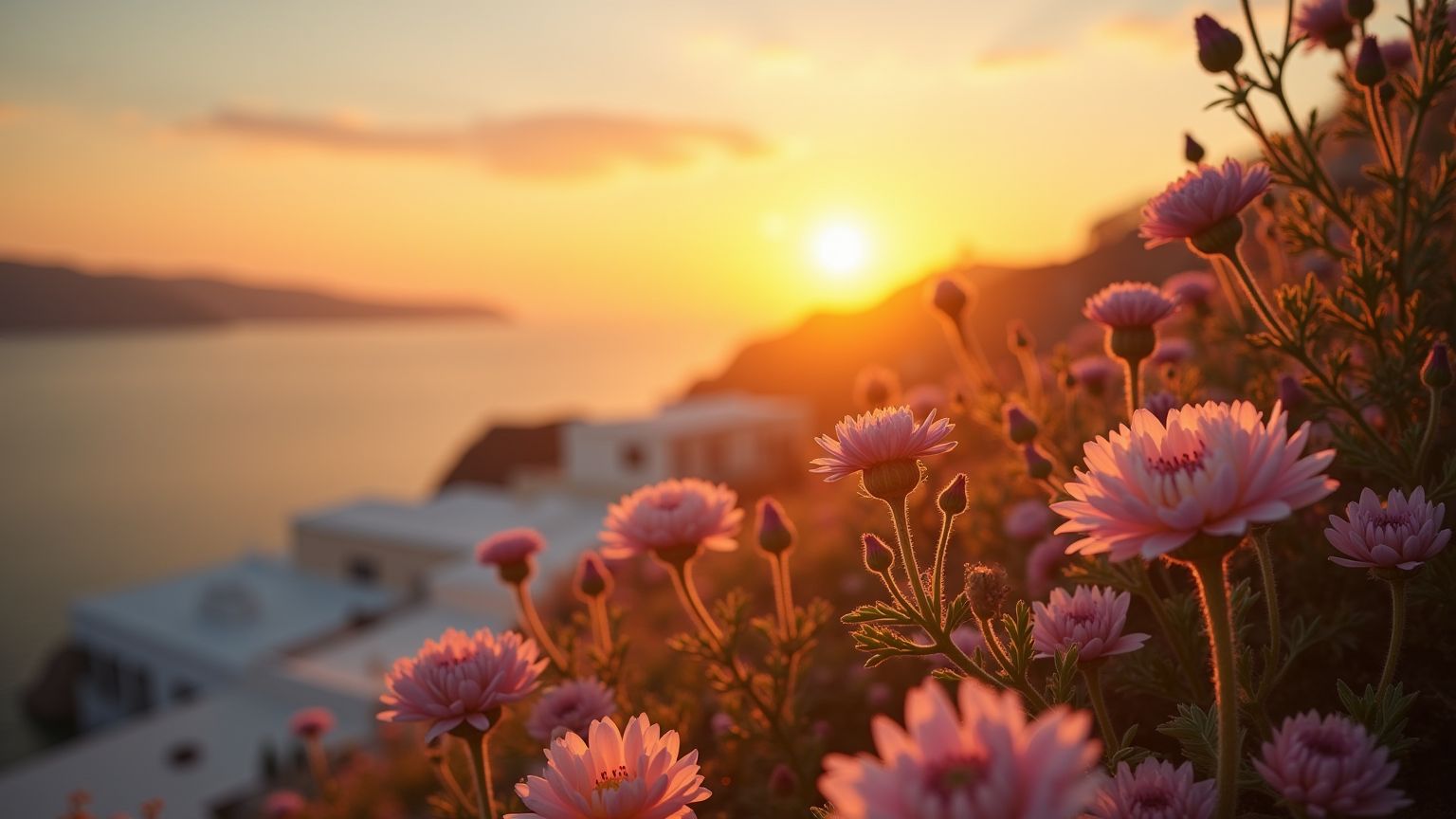Kalimera vs Kalispera: Essential Greek Greetings Every Traveler Should Know
Everybody knows what this meaning. After spending twenty-odd years showing folks around the sun-soaked corners of Greece, I've watched countless visitors' faces light up when they nail their first Greek phrase. There's something almost magical about the way a simple "kalimera" breaks down walls between travelers and locals. These everyday Greek greetings—especially kalimera and kalispera—aren't just words; they're your golden ticket to genuine connections during your Grecian escapades.
When the Morning Whispers Hello

"Kalimera" (καλημέρα) isn't just Greece's morning hello—it's a cultural handshake that carries warmth beyond its literal meaning.
This beautiful greeting marries "kali" (καλή), meaning "good," with "mera" (μέρα), meaning "day." When a Greek person offers you a kalimera, they're not just acknowledging the time—they're genuinely hoping your day unfolds beautifully. It's like a tiny verbal gift wrapped in two syllables.
When That Kalimera Magic Works Best
In my experience showing travelers around, it fits perfectly from the crack of dawn until roughly midday. You'll want to use it when:
• Stumbling into a tiny café for that first hit of Greek coffee
• Nodding to vendors while picking through morning market treasures
• Acknowledging fellow early birds on hiking trails
• Greeting the day (and nearby beachgoers) when your toes first hit warm sand
I remember guiding a Seattle family through Athens' maze-like Plaka district last spring. Their nine-year-old daughter had practiced her kalimera obsessively on the flight over. When she finally used it on an elderly shopkeeper with wild silver hair, the woman's face cracked into the most genuine smile I'd seen all season. Without a word of shared language beyond that kalimera, the shopkeeper pressed a homemade kourabiedes cookie into the girl's hand. That's the effect of this word—unexpected sweetness from a simple greeting.
Getting Your Kalimera Right
Say it: "kah-lee-MEH-rah," with the emphasis hitting that third syllable. Don't sweat pronunciation perfection—Greeks care more about your effort than your accent. I've heard kalimera butchered a thousand ways, and it still works its magic.
Kalispera: When Afternoon Stretches Into Evening
As the fierce Greek sun begins its downward journey and shadows lengthen across ancient stones, it's time to switch to "kalispera" (καλησπέρα). This afternoon-to-evening greeting combines "kali" with "espera" (evening).
Kalispera carries more flexibility than kalimera. Most Greeks start using it around noon and continue until the stars appear. It's your go-to greeting when:
• Ducking into a family-run taverna for mid-afternoon mezedes
• Meeting up with friends as the workday ends
• Acknowledging neighbors during your sunset stroll
• Entering any shop during the bustling afternoon hours
The Social Heart of Kalispera
In Greece, kalispera often marks the transition from work to pleasure. While mornings buzz with errands and practicalities, afternoons and evenings belong to connection.
Last June, I guided a silver anniversary couple through Santorini's narrow pathways. As afternoon light painted everything in honey tones, I taught them to greet each taverna owner with a confident kalispera. By sunset, they'd received an unexpected invitation to join a local family's celebration—complete with homemade raki and spontaneous dancing. Their simple kalispera had transformed them from tourists taking pictures to guests making memories.
Pronouncing Your Evening Welcome
Say "kalispera" as "kah-lee-SPEH-rah," with emphasis on that "SPEH" syllable. The 'r' gets a slight roll, but honestly, your smile matters more than perfect pronunciation. I've seen kalispera work its magic even when mangled beyond recognition.
Why These Greetings Open Doors
Having witnessed thousands of first encounters between travelers and locals, I can tell you that using kalimera and kalispera fundamentally changes how Greeks respond to you. Greece's tradition of "filoxenia" (hospitality) runs marrow-deep, and acknowledging their language honors this cultural cornerstone.
When you offer a hearty kalimera or kalispera, you're silently communicating:
- Cultural awareness – You recognize you're a guest in someone else's world
- Genuine interest – You're willing to step outside your linguistic comfort zone
- Respect for difference – You value Greek expression on its own terms
Greeks don't expect visitors to discuss philosophy in their language, but these small greeting efforts show you see Greece as more than just a pretty backdrop for your Instagram story.
Beyond Kalimera and Kalispera: Expanding Your Greek Hello Repertoire
Once you've mastered kalimera and kalispera, consider adding these complementary expressions:
• Kaliniχta (καληνύχτα) – Good night (when parting ways after dark)
• Χairomai pou sas gνorisa (Χαίρομαι που σας γνώρισα) – Pleased to meet you
• Efχaristo (ευχαριστώ) – Thank you
I've noticed travelers who pair their morning kalimera with an appreciative efχaristo often receive special treatment—perhaps an extra splash of wine, a dessert "from the house," or simply more attentive service. That kalimera-efχaristo combo works like conversational alchemy.
When Other Greetings Fit Better
While kalimera and kalispera cover most situations, occasionally different expressions work better:
• For goodbyes, use "Αντίο" (Adio) in formal settings or "Γεια σας" (Ya sas) for casual farewells
• Late at night, "Kaliniχta" trumps kalispera when bidding goodnight
• For extra formality, add "Sas" after kalimera to show additional respect
How Kalimera Shifts Across Greece
As you island-hop or venture into mountain villages, you might notice subtle variations in how kalimera and kalispera are deployed. In some islands and rural pockets, the first might stretch well into afternoon, while urbanites in Athens often switch to kalispera earlier.
During my years leading tours through sleepy Peloponnese villages, I noticed white-haired locals using kalimera until dinnertime, while in cosmopolitan areas, kalispera might begin as early as lunchtime. The kalimera-to-kalispera transition follows local rhythms rather than strict clock time.
Real-World Kalimera and Kalispera in Action
Let me share some everyday scenarios where these greetings enhance your Greek adventure:
Morning bakery run:
"Kalimera! Ena koulouri, parakalo." (Good morning! One sesame bread ring, please.)
Entering a seaside taverna at sunset:
"Kalispera! Exete trapezi me thea?" (Good evening! Do you have a table with a view?)
Meeting your boat tour captain:
"Kalimera! Eimaste etoimoi gia tin volta." (Good morning! We're ready for the trip.)
Checking with hotel staff about tomorrow's weather:
"Kalispera! Ti kairo tha kani avrio?" (Good evening! What will the weather be tomorrow?)
Dancing to Greece's Daily Greeting Rhythm
After twenty years showing travelers Greece's hidden corners, I've noticed those who embrace the natural progression of kalimera to kalispera seem to sync with local time in meaningful ways. Their experiences feel less touristy and more authentic.
This simple greeting pattern helps you tune into Greece's natural tempo. Mornings pulse with activity—market shopping, archaeological explorations before heat intensifies, peaceful swims in glassy waters. When kalimera shifts to kalispera, the day softens into connection, lengthy meals, and celebration.
By matching your greetings to this rhythm, you're not just speaking words—you're acknowledging and participating in cultural patterns that stretch back generations. Each kalimera becomes both greeting and ritual.
How These Small Words Create Big Memories
Last August, I guided a painfully shy software engineer who initially refused to attempt any Greek words, terrified of mispronunciation. After gentle encouragement, he tried his first hesitant kalimera at a neighborhood kafeneio. The owner's face transformed from professional politeness to genuine welcome. By day's end, my traveler couldn't stop practicing both kalimera and kalispera, astonished by how differently locals responded to his efforts.
By his final morning in Greece, that simple word had unlocked conversations, recommendations, and even an impromptu cooking lesson—all experiences that would have remained locked away without that small linguistic key.
Final Thoughts: The Alchemy of Greek Greetings
In my decades guiding travelers through Greece's sun-baked landscapes, I've come to believe kalimera and kalispera work a particular kind of everyday magic. They're not just pleasantries—they're permission slips for authentic connection.
When you greet someone with kalimera, you're not merely saying "good morning"—you're declaring "I see you, I honor your world, and I'm here to connect." This tiny gesture swings open doors that remain firmly shut to travelers who stay wrapped in their native language.
As you pack for your Greek adventure, practice kalimera and kalispera until they feel natural on your tongue. Let these greetings be your first step toward meaningful cultural connection. The rewards—spontaneous invitations, genuine interactions, moments of unexpected kindness—will flavor your Greek experience in ways no luxury hotel or famous ruin ever could.
Remember: a confident kalimera creates more meaningful memories than the perfect photo opportunity. It transforms you from observer to participant in the everyday poetry of Greek life.
Καλό ταξίδι! (Kalo taxidi – May your journey sparkle!)
🏛️ Ready to Experience Greece First-Hand?
Turn your Greece knowledge into unforgettable memories with our authentic local tours








